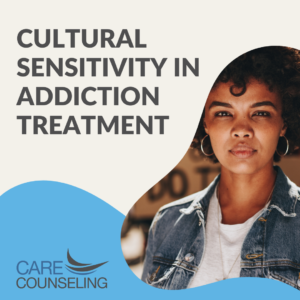Cultural Sensitivity in Addiction Treatment
 When it comes to addiction treatment, a one-size-fits-all approach often falls short of addressing the unique needs and challenges faced by diverse populations. Cultural sensitivity in addiction treatment is not just a matter of respecting differences; it’s essential for improving outcomes and fostering lasting recovery.
When it comes to addiction treatment, a one-size-fits-all approach often falls short of addressing the unique needs and challenges faced by diverse populations. Cultural sensitivity in addiction treatment is not just a matter of respecting differences; it’s essential for improving outcomes and fostering lasting recovery.
Understanding Cultural Sensitivity
Cultural sensitivity in addiction treatment refers to the recognition and respect of cultural differences among individuals seeking help for substance use disorders. It involves acknowledging that cultural factors, such as beliefs, values, traditions, and social norms, can significantly influence an individual’s experience of addiction and their approach to recovery.
The Importance of Cultural Sensitivity
- Access to Treatment:
– Cultural sensitivity in addiction treatment ensures that diverse populations have equal access to services. This is vital, as individuals from certain cultural backgrounds may face barriers to seeking help due to stigma or language barriers.
- Tailored Treatment Plans:
– Not all treatment approaches work equally well for everyone. Culturally sensitive treatment acknowledges that what may be effective for one person may not be suitable for another.
– By considering an individual’s cultural background, treatment providers can tailor plans that resonate with their values and beliefs, increasing the likelihood of success.
- Enhanced Engagement and Trust:
– Trust is a cornerstone of effective addiction treatment. When individuals feel that their cultural identity is respected and understood, they are more likely to engage actively in treatment and build trust with their providers.
– Cultural sensitivity fosters a therapeutic alliance that can be instrumental in the recovery process.
- Reducing Disparities:
– Health disparities in addiction treatment outcomes are well-documented. Culturally sensitive care aims to bridge these gaps by addressing the unique challenges faced by diverse populations.
– It acknowledges that factors such as cultural stigma, discrimination, or lack of cultural understanding can contribute to disparate outcomes.
The Role of Cultural Competency
Cultural competency refers to the ability of healthcare providers to understand, respect, and effectively respond to the cultural needs and preferences of their patients. In addiction treatment, cultural competency is a key component of delivering culturally sensitive care.
- Education and Training:
– Healthcare professionals must receive training on cultural competency to better understand the diverse backgrounds of their clients.
– This training helps providers navigate cultural differences, avoid stereotypes, and offer more tailored treatment plans.
- Cultural Assessment:
– Conducting cultural assessments is an essential part of cultural competency. This involves asking open-ended questions and actively listening to clients to understand their unique cultural perspectives.
– By conducting these assessments, providers can gain insights into how cultural factors may impact the client’s addiction and recovery journey.
- Cultural Humility:
– Cultural competency is not about becoming experts in every culture but rather about approaching clients with cultural humility.
– Providers should be willing to learn from their clients, admit their limitations, and be open to adapting their approaches based on the individual’s cultural preferences.
- Collaboration and Community Resources:
– Culturally competent treatment providers often collaborate with community organizations and cultural leaders to better serve their clients.
– By tapping into community resources and networks, providers can offer more comprehensive and culturally sensitive care.
Cultural sensitivity in addiction treatment is not an option; it is a necessity. Recognizing and respecting the cultural diversity of individuals seeking help for substance use disorders is paramount to improving treatment outcomes and reducing disparities in addiction care.
It empowers healthcare providers to better understand, respect, and respond to the unique needs of their clients. By fostering a culture of cultural sensitivity and competency within addiction treatment, we can create a more inclusive and effective system that supports diverse populations on their path to recovery.



























